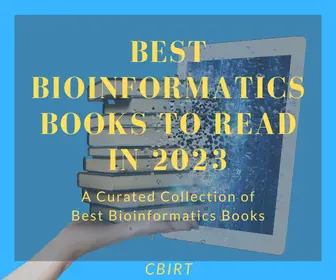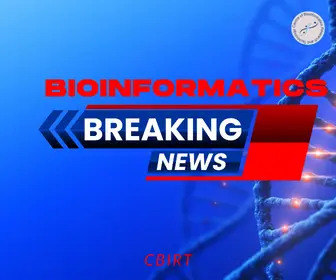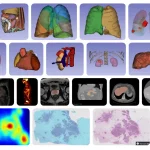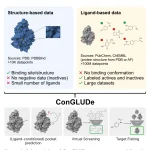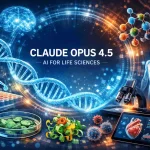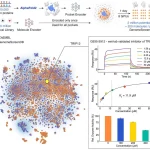In groundbreaking research, scientists from Brigham Young University, United States, have developed a cutting-edge deep learning computer model, Kaiko, with the unprecedented capability to predict peptide sequences from mass spectrometry data. Kaiko is trained on 5 million peptide–spectrum matches from 55 phylogenetically diverse bacteria. Kaiko has significantly improved accuracy compared to currently available computational tools for generating a protein database.
Exploring the Soil Microbiome through Metaproteomics
The world beneath our feet is teeming with life, and the soil microbiome plays a vital role in numerous global processes, from nutrient cycling to supporting plant growth. Recent advancements in high-throughput sequencing technologies have provided valuable insights into the composition and functions of soil microbial communities. Metagenome sequencing has shed light on the genes present in these communities, but it doesn’t reveal which genes are actively expressed and functional. To bridge this gap, metaproteomics has emerged as a powerful tool that analyzes the proteins expressed by the soil microbiome, offering a deeper understanding of their activities.
Despite the potential of metaproteomics, significant challenges remain, particularly in the creation of a sample-specific protein sequence database. To identify proteins accurately, the metaproteomic analysis relies on a well-matched database representing the organisms present in the sample. However, obtaining a complete and accurate database from environmental samples can be daunting, as it is often not possible to know the organisms beforehand. This limitation poses a practical barrier, especially when working with limited resources or samples from diverse environments.
Consequently, the development of rapid methods to establish a soil sample database would be immensely beneficial to researchers studying the soil microbial community. This advancement could potentially enhance our comprehension of how specific microbial communities influence climate change and agriculture.
Kaiko: A De Novo Spectrum Annotation Tool
To address these challenges, scientists have developed a groundbreaking deep learning model called Kaiko, named after the Japanese deep ocean submersible that explored the Marianas Trench. Kaiko dives into vast data realms, unraveling intricate patterns through its learning prowess. To train Kaiko about the intricate world of proteins, scientists tapped into the rich reservoir of mass spectrometry peptide sequences housed in EMSL, the Environmental Molecular Sciences Laboratory—an esteemed Department of Energy (DOE) Office of Science user facility.
The training process involved a colossal dataset of 5 million sample matches from 55 diverse microbes representing nine distinct taxa. Kaiko imbibed this knowledge, equipping itself to identify species directly from proteomic data sourced from both natural and synthetic soil samples, leveraging the EMSL training set.
With its diverse training, Kaiko proved to be a game-changer. It could successfully identify organisms from soil isolates and synthetic communities directly from proteomics data, even in taxonomic divisions or environmental niches not encountered during training. This versatility enabled Kaiko to confidently identify a wide range of organisms, including fungi, a significant advantage over conventional metagenome sequencing limited to bacteria.
Creating a Metaproteome Database with Kaiko
The success of Kaiko as a de novo spectrum annotation tool prompted the development of a pipeline for metaproteome database generation. Instead of relying on (un)matched metagenomes, researchers could now infer community composition directly from metaproteomic data using Kaiko’s analysis. This process involved identifying the most dominant organisms and gathering full proteomic databases for these organisms. The resulting database proved to be highly effective, identifying all abundant taxa from 16S rRNA sequencing and revealing additional species not detected in the sequencing data.
Revealing Microbial Functions with Metaproteomics
The advantages of metaproteomics extended beyond taxonomy identification. The identified peptides provided valuable insights into the metabolic functions carried out by the soil microbiome. Functional annotations revealed various enzymatic activities associated with transcription, translation, energy production, and signaling. Additionally, mapping enzymatic reactions within metabolic pathways allowed researchers to distinguish metabolic routes utilized by different dominant taxa.
Future Prospects
Metaproteomics, with the aid of cutting-edge tools like Kaiko, is poised to revolutionize the study of soil microbiomes. As peptide identification algorithms and training data sets continue to improve, metaproteomics will offer even greater coverage and specificity in identifying community membership. This approach holds immense promise for furthering our understanding of the hidden world beneath our feet, unraveling the intricate workings of soil microbiomes, and shedding light on their crucial role in global processes.
Conclusion
Metaproteomics has emerged as a transformative method for studying soil microbiomes. Kaiko’s breakthrough in de novo spectrum annotation has paved the way for a new era of metaproteomic data analysis. With continued advancements, unlocking new frontiers in soil microbiome research is on the brink, enhancing our comprehension of how these microorganisms influence critical ecological processes. With Kaiko at their side, researchers across the globe can now delve into the enigmatic world of soil microbiomes, unlocking new frontiers of exploration. The horizon of scientific inquiry stretches farther than ever before, thanks to this groundbreaking tool. The future of metaproteomics looks bright, promising groundbreaking discoveries and a deeper appreciation of the complex life thriving beneath the surface.
Story Source: Reference Paper
Learn More:
Dr. Tamanna Anwar is a Scientist and Co-founder of the Centre of Bioinformatics Research and Technology (CBIRT). She is a passionate bioinformatics scientist and a visionary entrepreneur. Dr. Tamanna has worked as a Young Scientist at Jawaharlal Nehru University, New Delhi. She has also worked as a Postdoctoral Fellow at the University of Saskatchewan, Canada. She has several scientific research publications in high-impact research journals. Her latest endeavor is the development of a platform that acts as a one-stop solution for all bioinformatics related information as well as developing a bioinformatics news portal to report cutting-edge bioinformatics breakthroughs.


